- Home
- Warhammer 40K
The Eternal Crusader - Guy Haley Page 4
The Eternal Crusader - Guy Haley Read online
Page 4
Grimaldus spoke without hesitation. ‘Yes, my liege.’
Helbrecht drew back his bionic hand and punched his new Reclusiarch in the face.
‘I dub thee Reclusiarch of the Eternal Crusade. You are now a leader of our blessed Chapter. As a knight of the Inner Circle, let that be the last blow you receive unanswered.’
Helbrecht watched Grimaldus’s face carefully. He yearns to strike me back, he thought. This is fitting, this is right. Mordred was wise in his selection. I am not wrong to honour his wish.
‘It… will be so my lord.’
‘As it should be. Rise, Grimaldus, Reclusiarch of the Eternal Crusade.’
CHAPTER FOUR
Armageddon
The Eternal Crusader speared back into the mortal realm to find a system readying itself for war. Vox-traffic, squealing with star-born interference, echoed over the comms channels, bringing the rumour of battles done days past at the edge of the system, orders long since fulfilled and the screams of dying men whose corpses were hours cold. Interspersed with Imperial signals were the invaders’ broadcasts, carrying the deep, inhumanly guttural utterances of orks.
There were two weeks, maybe less, until the orks made their way to Armageddon. The Black Templars fleet was swifter, cutting in from the Mandeville point to the heart of the system in a matter of days. Helbrecht remained on the command deck of the Eternal Crusader for most of that time, retreating only for prayer, and rarely resting. He consulted often with his shipmaster, Baloster, but allowed his serfs to attend to their duties without comment. His eyes were forever on the oculus. When not staring into the sparse voidscape of interplanetary space, he could be found at the holo tables, running the system’s planetary orbits months ahead, plotting all manner of strategic situations again and again. Scribes from the Hall of Records came to him in a constant stream, bringing every scrap of information they could find on the Second War and the ork warlord who had brought Armageddon to its knees once before.
They coasted round the gravity well of Pelucidar. As they used the planet’s gravitative attraction to slingshot themselves to greater speed, scattered wreckage annihilated itself on the void shields of the Eternal Crusader and her sisters. Fresh isotopes tickled the Crusader’s auspexes from recently destroyed vessels and spent munitions. A battle had been fought there recently. They saw no other sign of the orks. For all the crowded nature of the Armageddon System, the cosmos remained big enough to swallow them all.
Finally, Armageddon itself: it grew from a glint of sickly yellow to a grey ball of poisoned skies and poisoned seas, its diseased surface scabbed by the metallic growths of human hives. Whether man could be entirely to blame for Armageddon’s deadly nature was moot; its own volcanic systems blasted out a thousand years’ worth of industrial pollution every year, but the actions of mankind lay heavily on the world.
And this, thought Helbrecht, surveying the grubby planet, is what we must fight for. Such is the will of the Emperor.
The activity around Armageddon was frantic, thousands of ships dropping from orbit to surface, giving no time for their ticking hulls to cool before soaring skywards again. When night’s Terminator crept around the globe, the light trails of spacecraft coming to and from orbit in queues thousands of kilometres long lit up the dark. Millions of men and billions of tonnes of war materiel came down endlessly from the sky. Adeptus Mechanicus coffin ships, Astra Militarum landers, tank transports, freighters, Naval lighters, dual void/atmospheric fighter squadrons, barques, heavy lifters, resupply galleasses, tugs – every kind of vessel imaginable, stirring the skies of Armageddon into unseasonal storm through their constant activity.
All orbits were crammed with ships of war, the void between them dense with craft ferrying messengers and personnel to and fro. Traffic control worked overtime, the orbital stations of the hive world staffed by gritty-eyed adepts directing ships away from each other. Sleep became a commodity rarer and more valuable than adamantium.
The Black Templars Crusade was only one fleet among dozens. Each passing day more vessels arrived, called from every corner of the galaxy to this vital part of the Segmentum Solar. Aboard vessels, monitoring stations, ground control bunkers and command ships, scribes laboured ceaselessly over their cogitators and auto-scriveners, logic banks running hot calculating the names, numbers and disposition of the growing Imperial forces. Servitors collapsed, their brains cooked by data overload. The planetary noosphere was as clogged as the skies, and information was slow in getting to its destination. Those wisest among the members of the various adepta responsible for all this looked to their augur screens, deep-space pict captures and far-seeing oculi and knew it would not be enough. All too soon the lumbering hulks bearing the orks would be upon them. There were three of these waste-ships, then nine, then fifteen, escorted by somewhere in the region of two thousand ork cruisers, a host many times greater than the combined Battlefleet Armageddon and Space Marine fleets.
The Eternal Crusader was allocated a slot in a crowded orbit. A summons came soon after. Helbrecht called his new Reclusiarch and his Champion to his side, and together they went down to the surface where, at Hades Hive, a council gathered.
A theatre auditorium in the drab city played host to the first act of war. Over one hundred commanders of the Imperium – human, post-human and cybernetically altered – stood shoulder to shoulder in a riot of differing heraldries and uniforms. In the bunchings of the group one could see cliques developing, results of shared outlook or centuries-old debts of honour.
Between some factions there was outright antagonism. Hard looks and harsh words were exchanged many times. But every man and woman there, be it on shoulder, sash or armour plate, bore the freshly minted badge of the Armageddon campaign. Unity was the guiding principle at work, unity in the face of disaster.
Helbrecht approved. Too infrequently did the subjects of the Emperor act in harmony.
To Helbrecht’s front and right was Grimaldus, behind him Bayard. The two of them had exchanged no more than a handful of words since the Reclusiarch’s investiture. It would be interesting to see what both of them made of this meeting. Grimaldus’s first test, that is how Bayard will see it, but it shall also be a test for him, thought Helbrecht.
There was one within to whom all paid heed, a man of such years that he was truly ancient by non-Space Marine standards. Papery flesh, thin bones and a body ravaged by war. His one eye had been replaced by an unwieldy augmetic and his right arm was a stump with his commissar’s uniform sleeve pinned neatly over it. He should have been at rest, this loyal servant of the Emperor; he should not have been at war. Rejuvenats and surgery only went so far in holding the corporeal shell of a man together, yet within him burned a devotion to the Emperor that Helbrecht had rarely witnessed. To see such faith in so fragile a man humbled Helbrecht, and he could not take his eyes from him.
He was Commissar Sebastian Yarrick, the hero of the Second War for Armageddon. He looked around the room, his remaining flesh eye undimmed by age.
‘Hades Hive will not survive the first week,’ he said. His voice was dry but powerful. Servo-skulls broadcast his words to all corners of the crowd.
A murmur went around the room.
Yarrick leaned on the edge of the chart desk at the centre of the chamber and keyed coordinates into a numeric keypad. The current display of Hades Hive shifted focus, drawing out to show both inhabited subcontinents. Hades became a blinking signifier. The pinprick of red denoting it covered an insignificant portion of the hive on the pict-map. A metal disease with a suppurating sore at its heart, thought Helbrecht. A sure sign of humanity’s dominance, that we remake worlds so readily.
‘Six decades ago, the Great Beast met his defeat at Hades. Our defence here was what won us that war,’ Yarrick said.
Helbrecht had read this. His opinion differed. Yarrick had won that war, and the defence of Hades Hive could not have occurred without him.
‘Why?’ a transhuman voice interrupted.
There were many Space Marines present. Over two dozen captains, and a handful of Chapter Masters. Such a gathering belonged to legend, to the times of the Great Crusade. Helbrecht recognised the speaker as belonging to the Angels of Fire, an insignificant Chapter. They had a reputation for brashness and arrogance, to make up, he suspected, for their patchwork heritage. They were a mere thirty centuries old, and could claim no primarch. Founded by decree with gene-seed tithed to Terra, they were a mongrel breed. You could not create nobility from nothing.
‘We recognise Brother-Captain Amaras.’ A herald banged the butt of his staff on the floor three times, and the skull-drones repeated his announcement. ‘Commander of the Angels of Fire.’
‘Why would the greenskin warlord simply annihilate the greatest battlefield of the last war?’ Amaras said. ‘Surely our forces should muster at Hades and stand ready to defend against the largest assault?’
Helbrecht watched this young upstart. Their armour was as offensive as his attitude, bright scarlet chased with orange flames. Amaras did not notice Helbrecht’s stare, but emboldened by words from other commanders, spoke to Yarrick through a condescending smile. ‘We are the Emperor’s chosen, mortal. We are His Angels of Death. We have centuries of battle experience compared to these human commanders at your side.’
A new voice barked out harshly, moderated by a vox-grille. ‘No.’
The voice was Grimaldus’s.
Good, thought Helbrecht. Now we shall hear your wisdom. He left his stare boring into the side of Amaras’s head, but listened carefully to his Reclusiarch.
‘We recognise Brother-Chaplain Grimaldus, Reclusiarch of the Black Templars,’ shouted the herald.
From his posture, Helbrecht guessed Grimaldus was surprised he had spoken, but realised he could not take back his objection. He shifted in his armour. Go on, brother, thought Helbrecht, put this insolent unbeliever in his place.
‘The xenos do not think as we do,’ the Reclusiarch said. ‘The greenskins do not come to Armageddon for vengeance, or to seek to bleed us for the defeats they have suffered at Imperial hands in the past. They come for the pleasure of violence.’
Yarrick watched Grimaldus keenly, his own face in the dim light as skeletal as the Chaplain’s death mask.
Amaras pounded his fist on the table, and pointed at the Templar. Grimaldus tensed. Helbrecht noted a flicker of movement in his pistol hand, but he restrained himself.
‘That lends credence to my belief,’ said Amaras.
You fool, thought Helbrecht, he is not agreeing with you.
‘Not at all,’ said Grimaldus. ‘Have you inspected what remains of Hades Hive? It is a ruin. There is nothing to fight over, nothing to defend. The Great Beast knows this. He will be aware that Imperial forces will put up no more than a token resistance here, and fall back to defend hives that are still worth defending. It is likely that the warlord will obliterate Hades Hive from orbit, rather than seek to take it.’
‘We cannot let this hive fall! It is a symbol of mankind’s defiance!’ protested Amaras. ‘With respect, Chaplain–’
‘Enough,’ Yarrick said. ‘Peace, Brother-Captain Amaras. Grimaldus speaks with wisdom.’
Grimaldus inclined his head towards the ancient hero in thanks.
‘I will not be silenced by a mortal,’ Amaras growled.
Like all puppies, thought Helbrecht, there is no real fight in him.
Yarrick stared the captain down, letting his patient glare linger on him before turning to the rest of the room. His augmetic eye whirred as it focused.
‘Hades will not survive the first week.’ He shook his head. The motion made his statement final, irrefutable. ‘We must abandon the hive and spread the forces here to other bastions of strength. This is not the Second War. What is coming in-system now far exceeds what has laid waste to the planet before. The other hives must be reinforced a thousand times over.’ He cleared his throat, a hoarse sound devoid of moisture, a cough rooted in the dry wastelands of life’s final years. ‘Hades Hive will burn. We must make our stand elsewhere.’
General Kurov, ostensibly in command of all Imperial forces on Armageddon, stepped forwards with a data-slate in hand. ‘We come to the division of command.’ He took a breath. ‘The fleet that will besiege Armageddon is too vast to repel.’
There were jeers. Helbrecht and his brothers remained silent.
‘Hear me, friends and brothers.’ Kurov sighed. ‘And hear me well. Those of you who insist that this war is anything more than a conflict of bitter attrition are deceiving yourselves. At current estimates, we have over fifty thousand Adeptus Astartes in the Armageddon subsector, and thirty times the number of Imperial Guardsmen. And it will still not be enough to secure a clean victory. At our best estimates, Battlefleet Armageddon, the orbital defences and the Adeptus Astartes fleets remaining in the void will be able to deny the enemy landing for nine days. These are our best estimates.’
‘And the worst?’ A Space Wolf asked. Helbrecht took in his furs, his totem-decked battleplate, and thought him a heathen.
‘Four days,’ the old man said through his grim smile.
Silence came that no one broke. Kurov seized the opportunity to continue without interruption. Helbrecht decided that he had more respect for Kurov and Yarrick than for many of his supposed brother Space Marines.
‘Admiral Parol of Battlefleet Armageddon has outlined his plan and uploaded it to the tactical network for all commanders to review. Once the orbital war is lost, be it four days or nine, our fleets will break from the planet in a fighting withdrawal. From then on, Armageddon will be defenceless beyond what is already entrenched upon the surface. The orks will be free to land whatever and wherever they wish. Admiral Parol will lead the remaining Naval ships of the fleet in repeated guerrilla strikes against the invaders’ vessels still in orbit.’
‘Who will lead the Adeptus Astartes vessels?’ Captain Amaras spoke up again.
Yarrick paused, and nodded at the Black Templars.
‘Given his seniority and the expertise of his Chapter, High Marshal Helbrecht of the Black Templars will take overall command of the Adeptus Astartes fleets,’ said Yarrick. The look of understanding that passed between himself and Helbrecht was not lost on some of the room’s other ambitious commanders.
Uproar ensued – some Space Marine leaders demanded that the honour be theirs. The others looked on with a mixture of disbelief and distaste to see humanity’s champions bickering.
‘We are to remain in orbit?’ Grimaldus asked.
Helbrecht ignored him. He kept his focus on Yarrick, his face as stony as always. Let no man accuse him of triumphalism in being awarded the singular honour of overall command. ‘We are the obvious choice to command the Adeptus Astartes elements in the orbital battles.’
‘The Crusader will plunge like a lance into the core of their fleet. High Marshal, we can slaughter the greenskin tyrant before he even sets foot on the world below us,’ said Grimaldus, his voice fervent.
Now Helbrecht turned to Grimaldus.
‘I have already spoken with the other marshals, my brother,’ he said, pitching his voice low so that it was lost in the ongoing furore rippling around the room. ‘We must leave a contingent on the surface. I will lead the orbital crusade. Amalrich and Ricard will lead the forces in the ash wastes. All that remains in a single crusade is to defend one of the hive cities that yet remains ungarrisoned by Adeptus Astartes.’
Grimaldus shook his head. Helbrecht wondered if he guessed what was coming. This would be hard for the Reclusiarch to bear. That is why it had to be done. ‘That is not our duty, my liege. Both Amalrich and Ricard have a host of honours inscribed on their armour. Each has led greater crusades alone. Neither will relish an exile to a filthy manufactorum hive while a thousand of their brothers wage a glorious war in the heavens. You would shame them.’
‘And yet,’ said Helbrecht implacably, ‘a commander must remain.’
Grimaldus’s reaction did not surprise Helbrecht; n
evertheless, it did disappoint him.
‘Don’t,’ said the Reclusiarch. There was a plea in the voice of the Chaplain. Disappointing. ‘Don’t do this.’
‘It is already done.’
‘No, no!’
‘This is not the time.’ Helbrecht made especial effort to keep his voice level. His own fury responded to Grimaldus’s. The Reclusiarch’s reaction was unseemly, and demanded rebuke. ‘The decision is made, Grimaldus. I know you, as I knew Mordred. You will not refuse.’
‘No!’
The animated debate of nearby groups faltered. Helbrecht was acutely aware of commanders staring. To see differing Chapters argue was bad enough; dissension between two officers in the same brotherhood put them on edge.
Helbrecht said nothing. He needed to end this, and had no desire to provoke Grimaldus further.
‘I would burst the Great Beast’s black heart in my hand, and cast his blasphemous flagship to the surface of Armageddon wreathed in holy fire. Do not leave me here, Helbrecht. Do not deny me this glory!’
‘You will not refuse this honour,’ repeated Helbrecht. Grimaldus relented, and took a step back. The confrontation melted away as greater concerns took hold in the crowd, but Helbrecht was still aware of his Reclusiarch’s dissatisfaction.
Order was restored. Conversation turned to tactics. Grimaldus waited the barest amount of time that decorum demanded before walking away.
‘Wait, brother,’ said Helbrecht. He did not order, allowing Grimaldus to make his own choice. He willed the Reclusiarch to see sense, to not demean himself further.
Grimaldus left without another word.
Helbrecht watched him go, face fixed. Disappointing.
‘My liege–’ said Bayard.
Helbrecht cut off whatever the Champion was about to say. ‘Say nothing. Grimaldus will stay, Bayard. He will not dishonour us. He will emerge from this trial newly forged, or he will die gloriously. Either way, his actions will make this small tantrum of his appear as nothing. Now, attend to the discussion. We will speak no more of this today.’

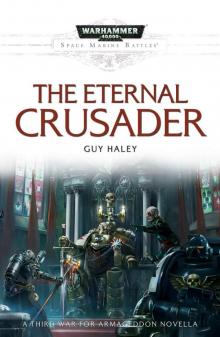 The Eternal Crusader - Guy Haley
The Eternal Crusader - Guy Haley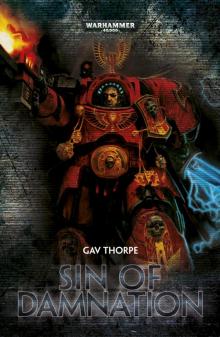 Sin of Damnation - Gav Thorpe
Sin of Damnation - Gav Thorpe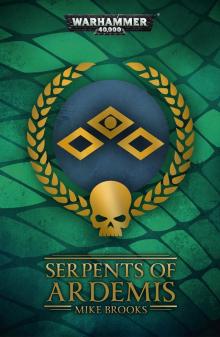 Serpents of Ardemis - Mike Brooks
Serpents of Ardemis - Mike Brooks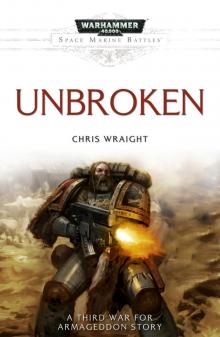 Unbroken - Chris Wraight
Unbroken - Chris Wraight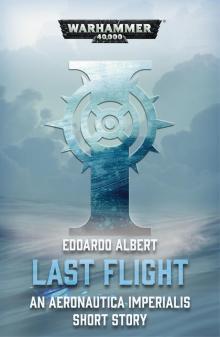 Last Flight - Edoardo Albert
Last Flight - Edoardo Albert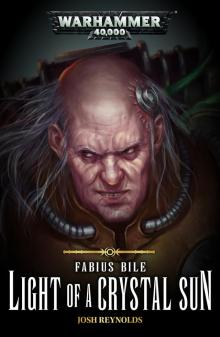 Light of a Crystal Sun - Josh Reynolds
Light of a Crystal Sun - Josh Reynolds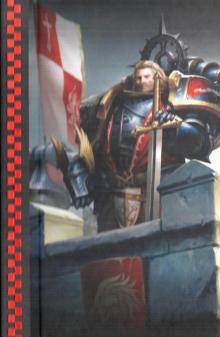 Lion El'Jonson- Lord of the First - David Guymer
Lion El'Jonson- Lord of the First - David Guymer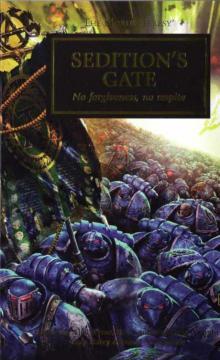 Sedition's Gate - Nick Kyme & Chris Wraight
Sedition's Gate - Nick Kyme & Chris Wraight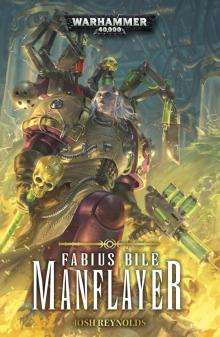 Manflayer - Josh Reynolds
Manflayer - Josh Reynolds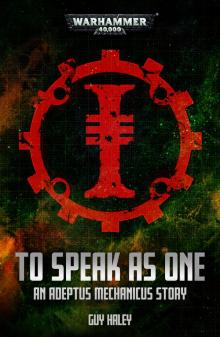 To Speak as One - Guy Haley
To Speak as One - Guy Haley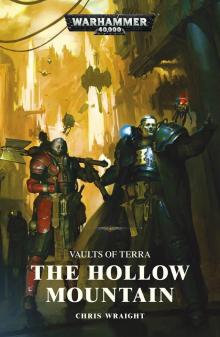 Vaults of Terra- The Hollow Mountain - Chris Wraight
Vaults of Terra- The Hollow Mountain - Chris Wraight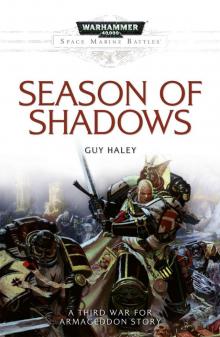 Season of Shadows - Guy Haley
Season of Shadows - Guy Haley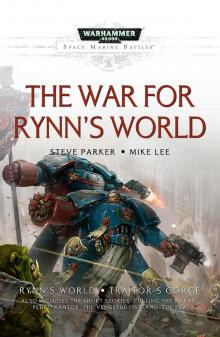 The War for Rynn's World - Steve Parker & Mike Lee
The War for Rynn's World - Steve Parker & Mike Lee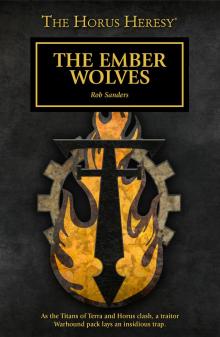 The Ember Wolves - Rob Sanders
The Ember Wolves - Rob Sanders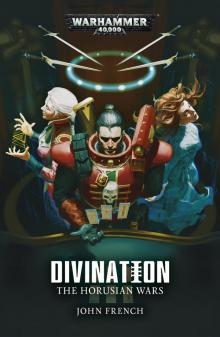 Divination - John French
Divination - John French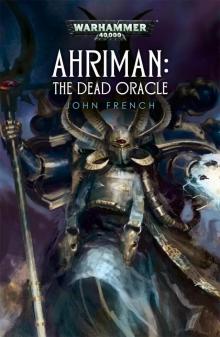 The Dead Oracle - John French
The Dead Oracle - John French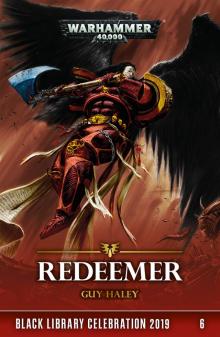 Redeemer - Guy Haley
Redeemer - Guy Haley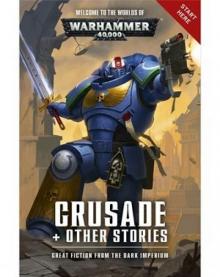 Crusade & Other Stories - Dan Abnett Et Al.
Crusade & Other Stories - Dan Abnett Et Al.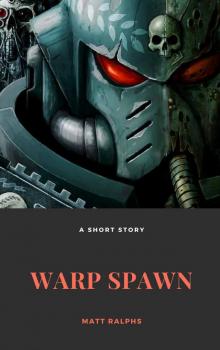 Warp Spawn - Matt Ralphs
Warp Spawn - Matt Ralphs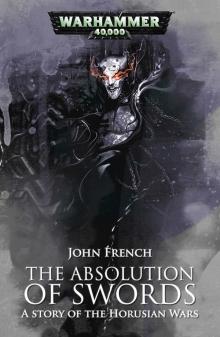 The Absolution of Swords - John French
The Absolution of Swords - John French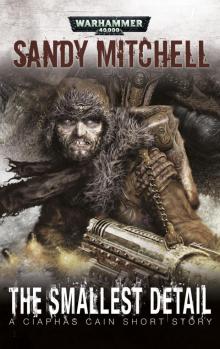 The Smallest Detail - Sandy Mitchell
The Smallest Detail - Sandy Mitchell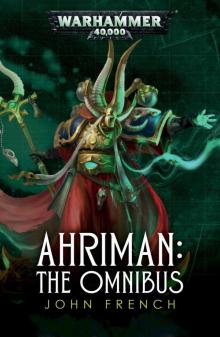 The Omnibus - John French
The Omnibus - John French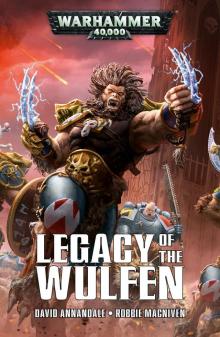 Legacy of the Wulfen - David Annandale & Robbie MacNiven
Legacy of the Wulfen - David Annandale & Robbie MacNiven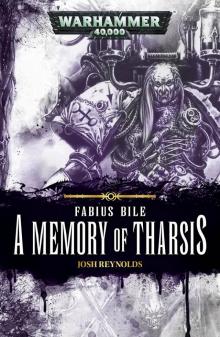 A Memory of Tharsis - Josh Reynolds
A Memory of Tharsis - Josh Reynolds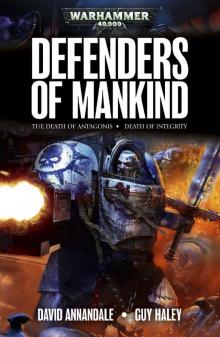 Defenders of Mankind - David Annandale & Guy Haley
Defenders of Mankind - David Annandale & Guy Haley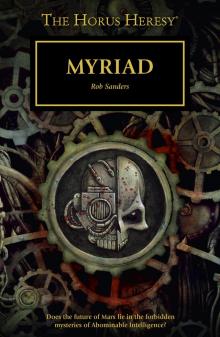 Myriad - Rob Sanders
Myriad - Rob Sanders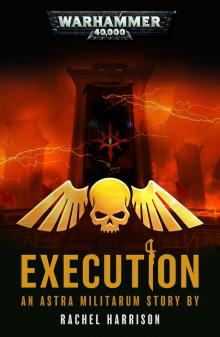 Execution - Rachel Harrison
Execution - Rachel Harrison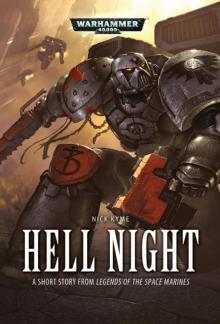 Hell Night - Nick Kyme
Hell Night - Nick Kyme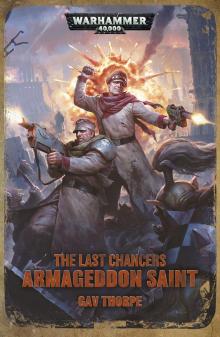 Armageddon Saint - Gav Thorpe
Armageddon Saint - Gav Thorpe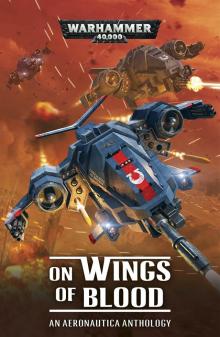 On Wings of Blood
On Wings of Blood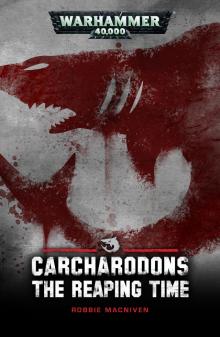 The Reaping Time - Robbie MacNiven
The Reaping Time - Robbie MacNiven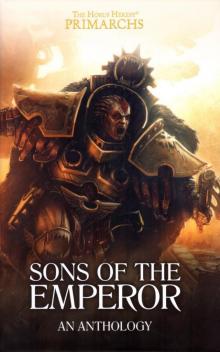 Sons of the Emperor
Sons of the Emperor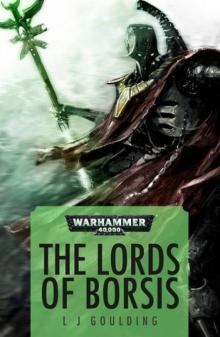 The Lords of Borsis - L J Goulding
The Lords of Borsis - L J Goulding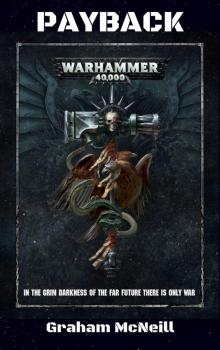 Payback - Graham McNeill
Payback - Graham McNeill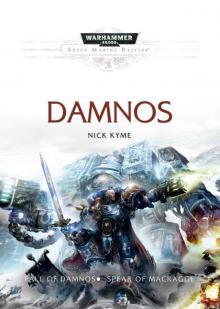 Damnos - Nick Kyme
Damnos - Nick Kyme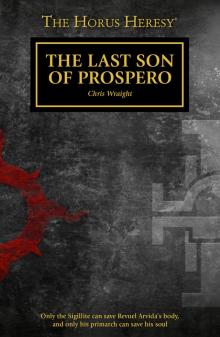 The Last Son of Prospero - Chris Wraight
The Last Son of Prospero - Chris Wraight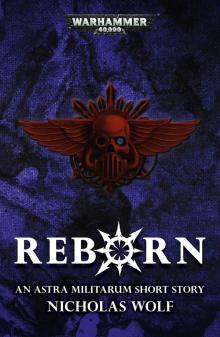 Reborn - Nicholas Wolf
Reborn - Nicholas Wolf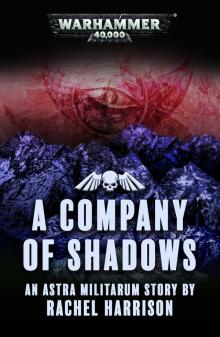 A Company of Shadows - Rachel Harrison
A Company of Shadows - Rachel Harrison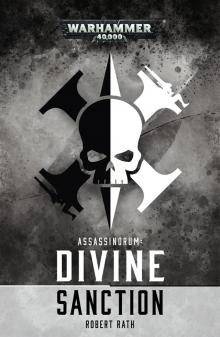 Assassinorum- Divine Sanction - Robert Rath
Assassinorum- Divine Sanction - Robert Rath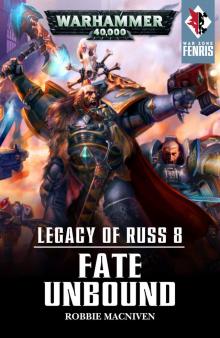 Fate Unbound - Robbie MacNiven
Fate Unbound - Robbie MacNiven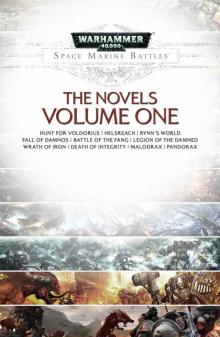 Space Marine Battles - the Novels Volume 1
Space Marine Battles - the Novels Volume 1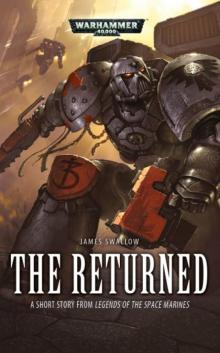 The Returned - James Swallow
The Returned - James Swallow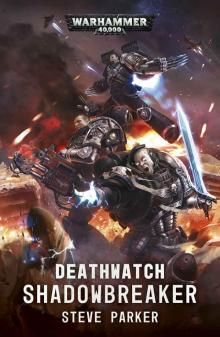 Shadowbreaker - Steve Parker
Shadowbreaker - Steve Parker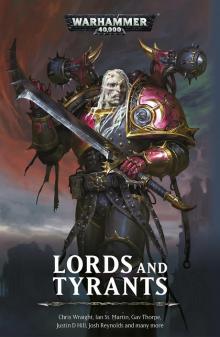 Lords and Tyrants
Lords and Tyrants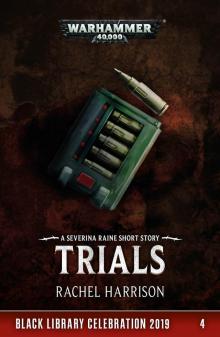 Trials - Rachel Harrison
Trials - Rachel Harrison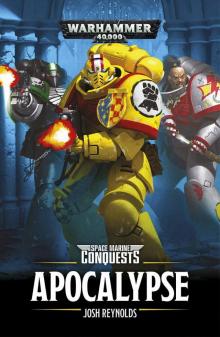 Apocalypse - Josh Reynolds
Apocalypse - Josh Reynolds The labyrinth - Richard Ford
The labyrinth - Richard Ford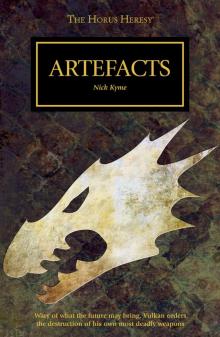 Artefacts - Nick Kyme
Artefacts - Nick Kyme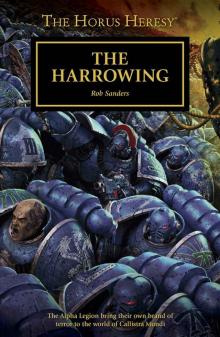 The Harrowing - Rob Sanders
The Harrowing - Rob Sanders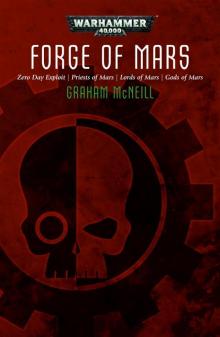 Forge of Mars - Graham McNeill
Forge of Mars - Graham McNeill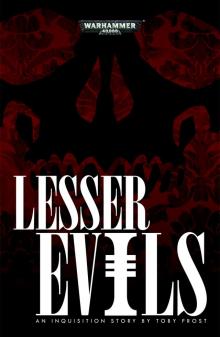 Lesser Evils - Toby Frost
Lesser Evils - Toby Frost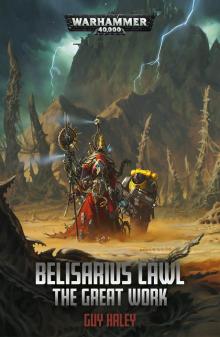 Belisarius Cawl- the Great Work - Guy Haley
Belisarius Cawl- the Great Work - Guy Haley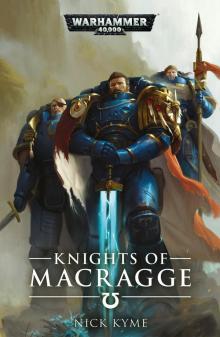 Knights of Macragge - Nick Kyme
Knights of Macragge - Nick Kyme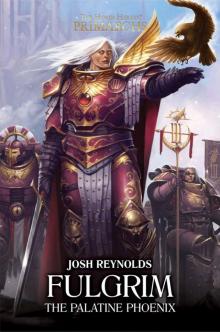 Fulgrim- The Palatine Phoenix - Josh Reynolds
Fulgrim- The Palatine Phoenix - Josh Reynolds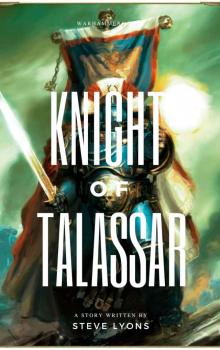 Knight of Talassar - Steve Lyons
Knight of Talassar - Steve Lyons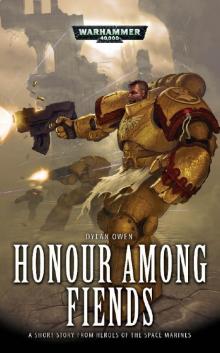 Honour Among Fiends - Dylan Owen
Honour Among Fiends - Dylan Owen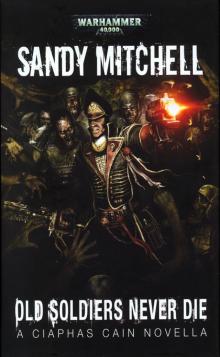 Old Soldiers Never Die - Sandy Mitchell
Old Soldiers Never Die - Sandy Mitchell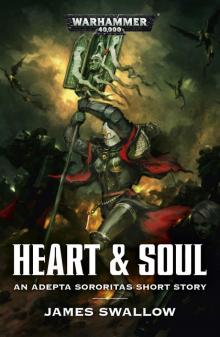 Heart & Soul - James Swallow
Heart & Soul - James Swallow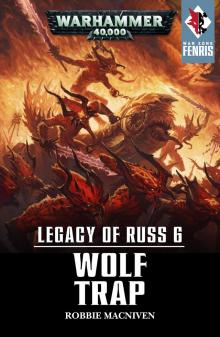 Wolf Trap - Robbie MacNiven
Wolf Trap - Robbie MacNiven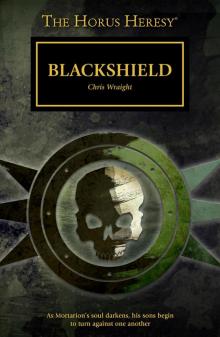 Blackshield - Chris Wraight
Blackshield - Chris Wraight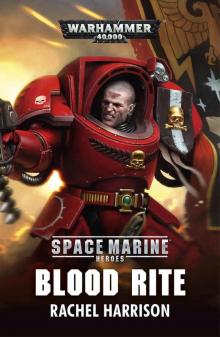 Blood Rite - Rachel Harrison
Blood Rite - Rachel Harrison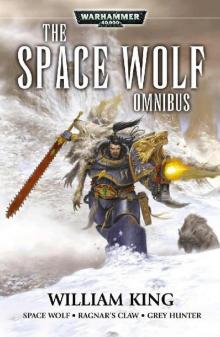 The Space Wolf Omnibus - William King
The Space Wolf Omnibus - William King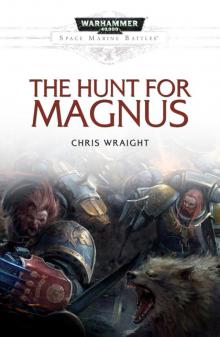 The Hunt for Magnus - Chris Wraight
The Hunt for Magnus - Chris Wraight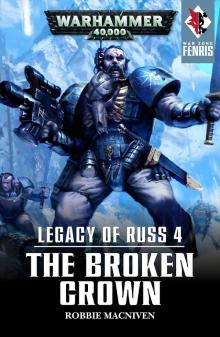 The Broken Crown - Robbie MacNiven
The Broken Crown - Robbie MacNiven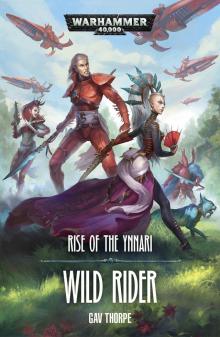 Wild Rider - Gav Thorpe
Wild Rider - Gav Thorpe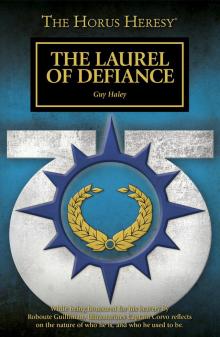 The Laurel of Defiance - Guy Haley
The Laurel of Defiance - Guy Haley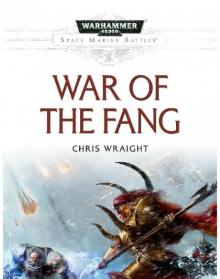 War of the Fang - Chris Wraight
War of the Fang - Chris Wraight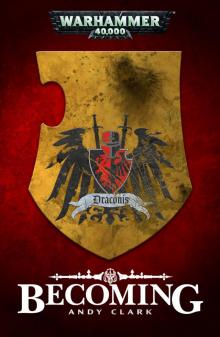 Becoming - Andy Clark
Becoming - Andy Clark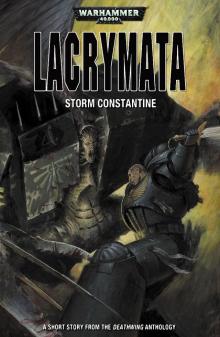 Lacrymata - Storm Constantine
Lacrymata - Storm Constantine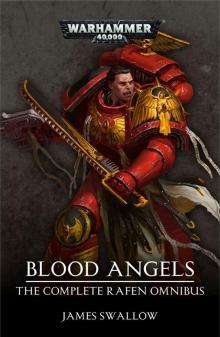 Blood Angels - The Complete Rafen Omnibus - James Swallow
Blood Angels - The Complete Rafen Omnibus - James Swallow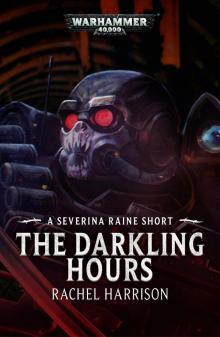 The Darkling Hours - Rachel Harrison
The Darkling Hours - Rachel Harrison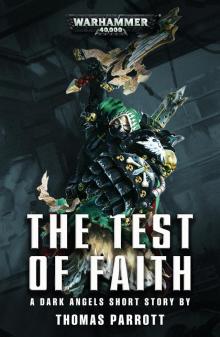 The Test of Faith - Thomas Parrott
The Test of Faith - Thomas Parrott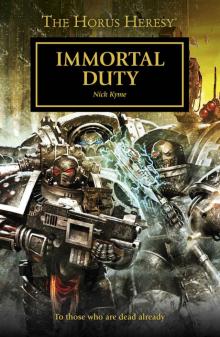 Immortal Duty - Nick Kyme
Immortal Duty - Nick Kyme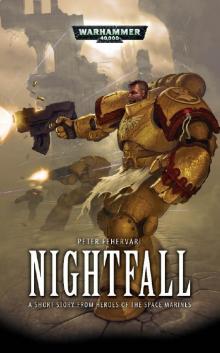 Nightfall - Peter Fehervari
Nightfall - Peter Fehervari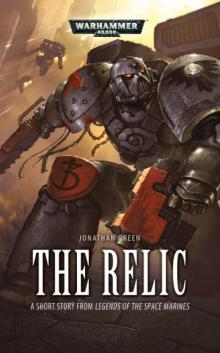 The Relic - Jonathan Green
The Relic - Jonathan Green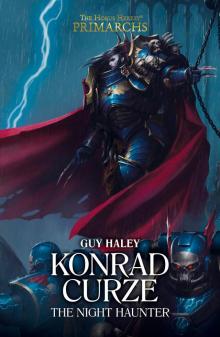 Konrad Curze the Night Haunter - Guy Haley
Konrad Curze the Night Haunter - Guy Haley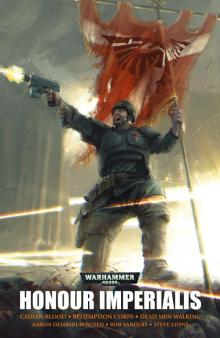 Honour Imperialis - Aaron Dembski-Bowden
Honour Imperialis - Aaron Dembski-Bowden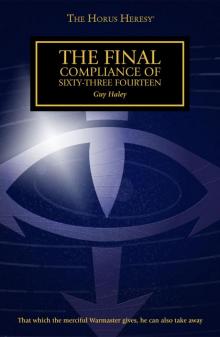 The Final Compliance of Sixty-Three Fourteen - Guy Haley
The Final Compliance of Sixty-Three Fourteen - Guy Haley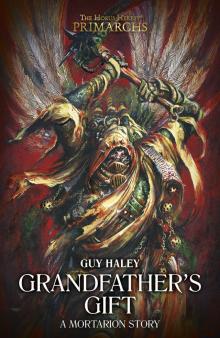 Grandfather’s Gift - Guy Haley
Grandfather’s Gift - Guy Haley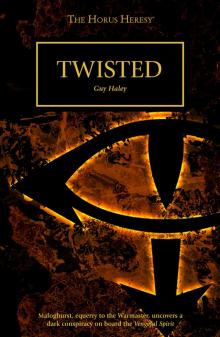 Twisted - Guy Haley
Twisted - Guy Haley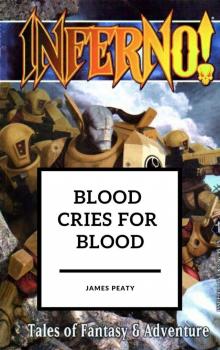 Blood Cries for Blood - James Peaty
Blood Cries for Blood - James Peaty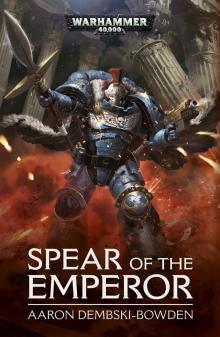 Spear of the Emperor - Aaron Dembski-Bowden
Spear of the Emperor - Aaron Dembski-Bowden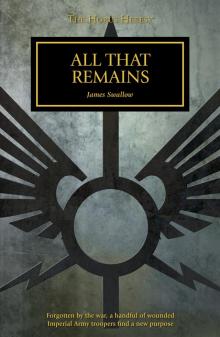 All That Remains - James Swallow
All That Remains - James Swallow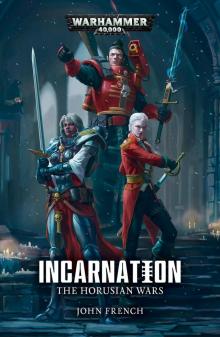 Incarnation - John French
Incarnation - John French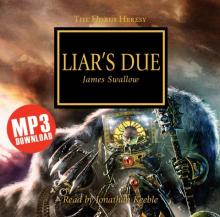 Liar's Due - Ben Swallow
Liar's Due - Ben Swallow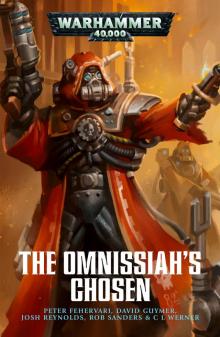 The Omnissiah's Chosen - Peter Fehervari
The Omnissiah's Chosen - Peter Fehervari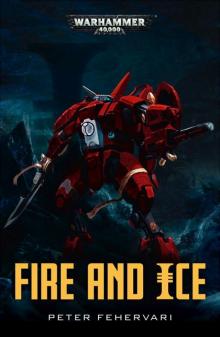 Fire and Ice - Peter Fehervari
Fire and Ice - Peter Fehervari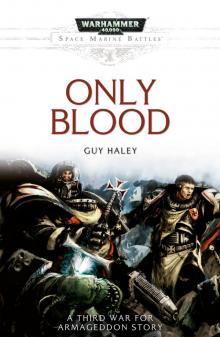 Only Blood - Guy Haley
Only Blood - Guy Haley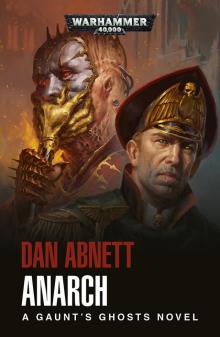 Anarch - Dan Abnett
Anarch - Dan Abnett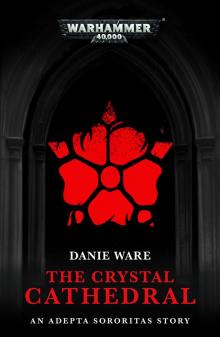 The Crystal Cathedral - Danie Ware
The Crystal Cathedral - Danie Ware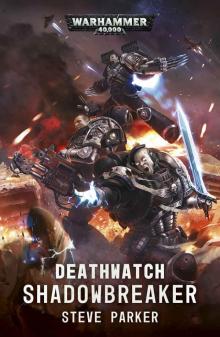 Shadowbreaker
Shadowbreaker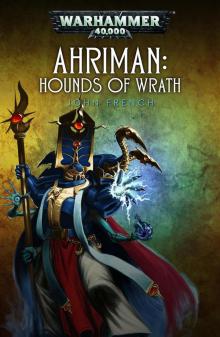 Hounds of Wrath - John French
Hounds of Wrath - John French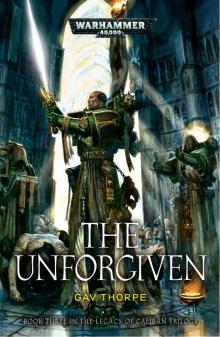 The Unforgiven - Gav Thorpe
The Unforgiven - Gav Thorpe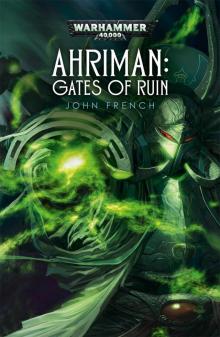 Gates of Ruin - John French
Gates of Ruin - John French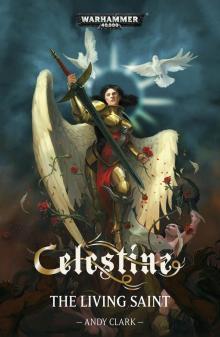 Celestine - Andy Clark
Celestine - Andy Clark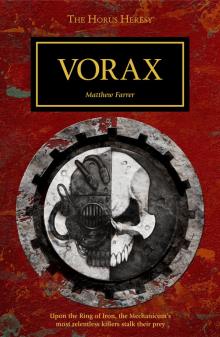 Vorax - Matthew Farrer
Vorax - Matthew Farrer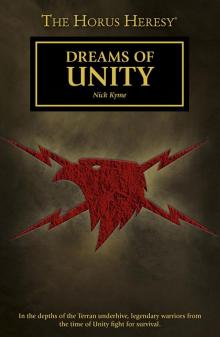 Dreams of Unity - Nick Kyme
Dreams of Unity - Nick Kyme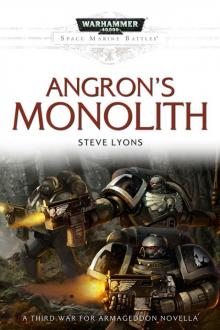 Angron's Monolith - Steve Lyons
Angron's Monolith - Steve Lyons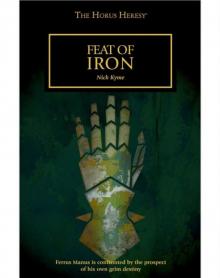 Feat of Iron - Nick Kyme
Feat of Iron - Nick Kyme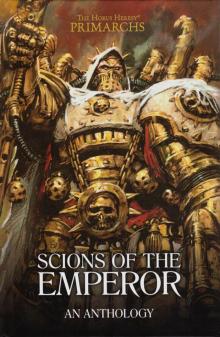 Scions of the Emperor
Scions of the Emperor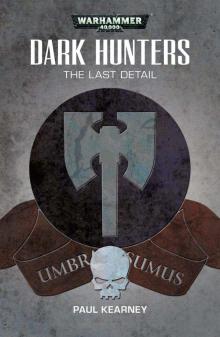 The Last Detail - Paul Kearney
The Last Detail - Paul Kearney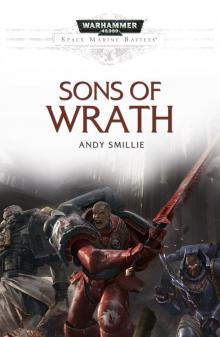 Sons of Wrath - Andy Smillie
Sons of Wrath - Andy Smillie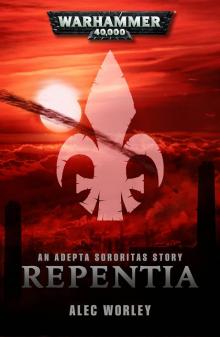 Repentia - Alec Worley
Repentia - Alec Worley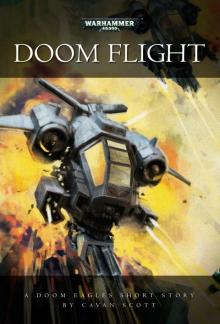 Doom Flight - Cavan Scott
Doom Flight - Cavan Scott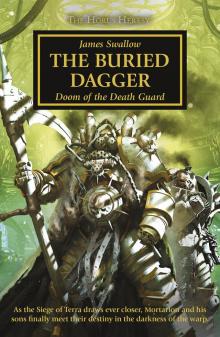 The Buried Dagger - James Swallow
The Buried Dagger - James Swallow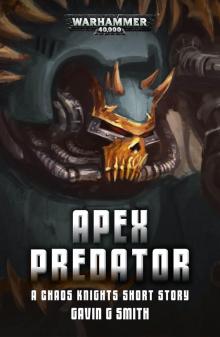 Apex Predator - Gavin G Smith
Apex Predator - Gavin G Smith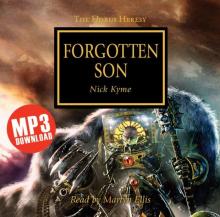 Forgotten Sons - Nick Kyme
Forgotten Sons - Nick Kyme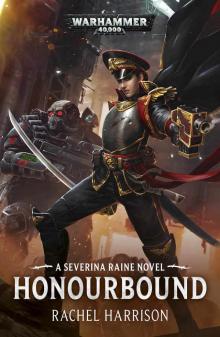 Honourbound - Rachel Harrison
Honourbound - Rachel Harrison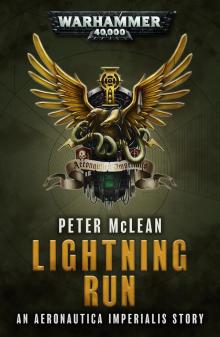 Lightning Run - Peter McLean
Lightning Run - Peter McLean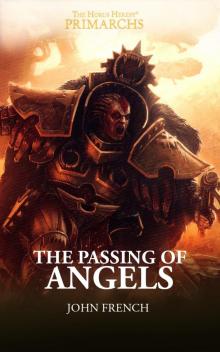 The Passing of Angels - John French
The Passing of Angels - John French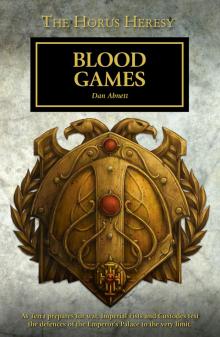 Blood Games - Dan Abnett
Blood Games - Dan Abnett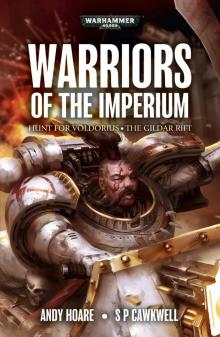 Warriors of the Imperium - Andy Hoare & S P Cawkwell
Warriors of the Imperium - Andy Hoare & S P Cawkwell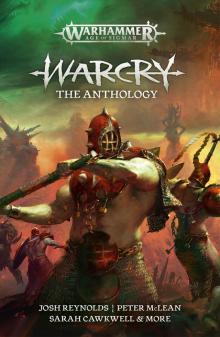 Warcry
Warcry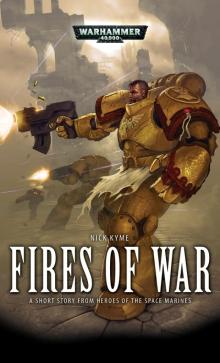 Fires of War - Nick Kyme
Fires of War - Nick Kyme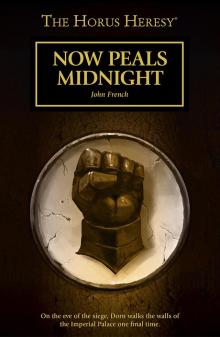 Now Peals Midnight - John French
Now Peals Midnight - John French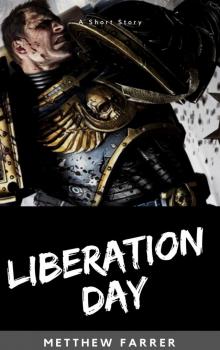 Liberation Day - Matthew Farrer
Liberation Day - Matthew Farrer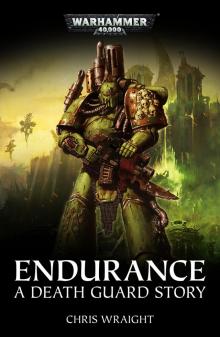 Endurance - Chris Wraight
Endurance - Chris Wraight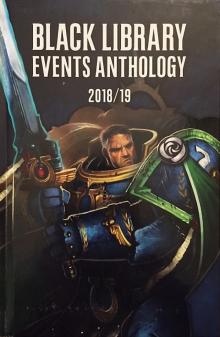 Black Library Events Anthology 2018-19
Black Library Events Anthology 2018-19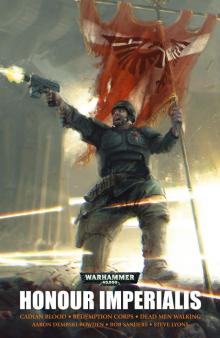 Honour Imperialis - Braden Campbell & Aaron Dembski-Bowden & Chris Dows & Steve Lyons & Rob Sanders
Honour Imperialis - Braden Campbell & Aaron Dembski-Bowden & Chris Dows & Steve Lyons & Rob Sanders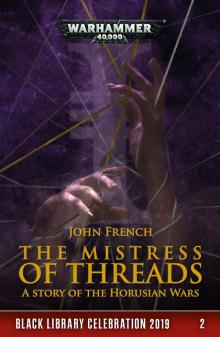 The Mistress of Threads - John French
The Mistress of Threads - John French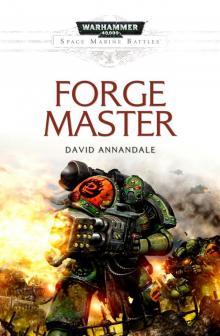 Forge Master - David Annandale
Forge Master - David Annandale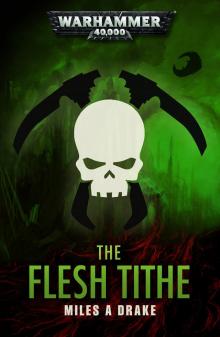 The Flesh Tithe - Miles A Drake
The Flesh Tithe - Miles A Drake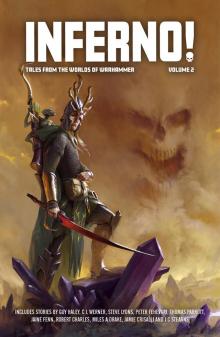 Inferno Volume 2 - Guy Haley
Inferno Volume 2 - Guy Haley Mercy of the Dragon - Nick Kyme
Mercy of the Dragon - Nick Kyme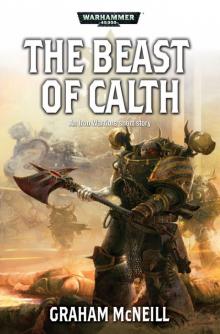 The Beast of Calth - Graham McNeill
The Beast of Calth - Graham McNeill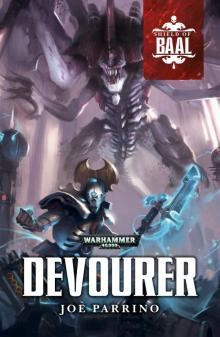 Devourer - Joe Parrino
Devourer - Joe Parrino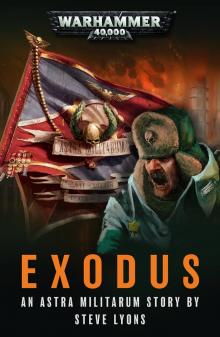 Exodus - Steve Lyons
Exodus - Steve Lyons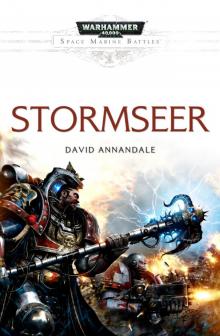 Stormseer - David Annandale
Stormseer - David Annandale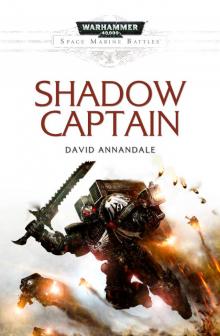 Shadow Captain - David Annandale
Shadow Captain - David Annandale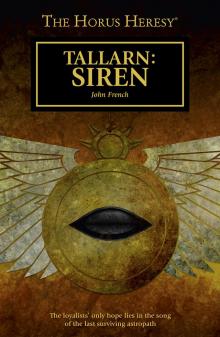 Tallarn- Siren - John French
Tallarn- Siren - John French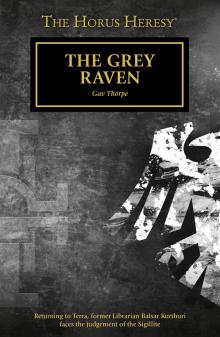 The Grey Raven - Gav Thorpe
The Grey Raven - Gav Thorpe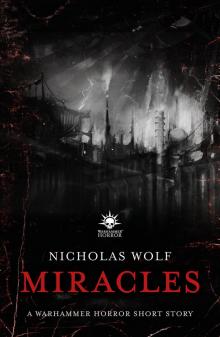 Miracles - Nicholas Wolf
Miracles - Nicholas Wolf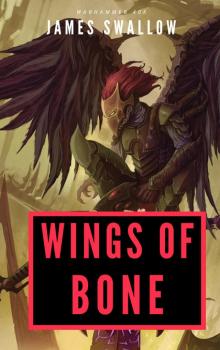 Wings of Bone - James Swallow
Wings of Bone - James Swallow